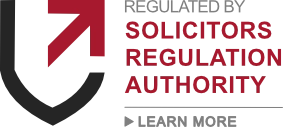
Directors’ duties and emergency changes to UK insolvency legislation in the light of the pandemic –
It is clear to everyone that a vast number of businesses, large and small, are suffering severe economic hardship as a result of the restrictions introduced by the Government in response to the Covid-19 pandemic.
However, even in the current challenging times, the general duties owed by company directors still apply. As a reminder, company directors owe duties to promote the business of the company for the benefit of shareholders and, in certain extreme circumstances, for the benefit of creditors.
In the last few days, issues relating to “wrongful trading” provisions in the Insolvency legislation have attracted particular attention. Wrongful trading arises where, during an insolvent liquidation or administration, it appears that a director knew or ought to have concluded prior to the liquidation or administration that there was no reasonable prospect that that liquidation or administration could be avoided, but nevertheless the company continued to trade. In those circumstances, a Court can order that a director be required to make a contribution towards the company’s assets, thus improving the overall position of creditors.
While an Order will not be made where a director has taken every possible step to minimise potential losses to creditors, many directors, the solvency of whose companies is perilous due to the restrictions imposed, have been concerned that they may face arguments concerning personal liability arising from the “wrongful trading” provisions. As a result, there was a concern that some companies might prematurely be placed into voluntary liquidation, rather than seek to ride out the lockdown, with a resulting long-term negative impact on the wider economy.
On Saturday 28 March 2020, the Government took the first steps towards making emergency changes to the Insolvency legislation. These changes are partly based on pro-debtor proposals first put forward in late 2018, but which had not yet been implemented. The emergency legislation has not yet been published; what follows is a very brief analysis of what was proposed in 2018 and may therefore be subject to change.
What details are available indicate that there will be a moratorium period for financially distressed but ultimately viable companies, giving them breathing space from creditors seeking to enforce their debts for a given period of time, whilst they seek a rescue or restructure. The moratorium will be overseen by a “monitor” who is an insolvency practitioner. The moratorium proposal is likely to include provisions which protect supplies to enable the company to continue trading during the moratorium; it is further proposed to introduce a new restructuring plan, binding even dissenting creditors to that plan. There is however an indication that, by way of balance, safeguards will be provided that will allow suppliers to be paid whilst a solution is sought: of course, in many cases a supplier who is owed money is likely also to be a debtor to its own suppliers.
The Government also announced the temporary, emergency suspension of the “wrongful trading” legislation which will provide comfort to the directors of companies whose solvency has been impacted by the current restrictions. There is, however, no change to the fraudulent trading provisions contained in the Insolvency legislation and a director can still be disqualified for misconduct. These are seen as important provisions to deter potentially “rogue” directors from taking advantage of the current situation. Directors still need to act responsibly and in accordance with the company’s constitution.
We recommend that, during these difficult times, directors should be meeting (remotely or observing social distancing) very regularly. They should ensure that they are equipped with up to date financial information in order to inform the decision making process. Discussions should be minuted and decisions properly recorded. If necessary, professional advice should be taken.
Post a comment
You must be logged in to post a comment.















